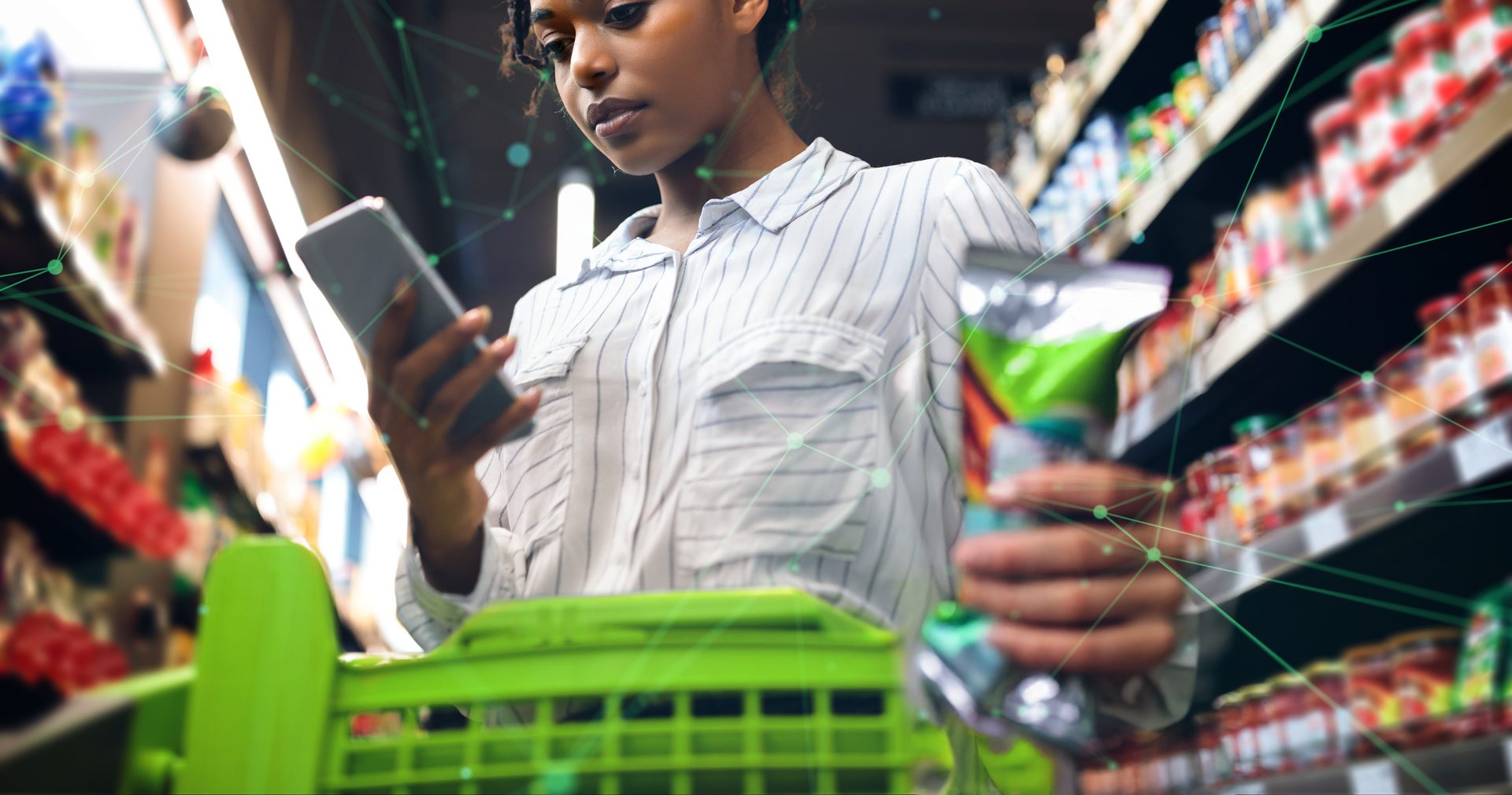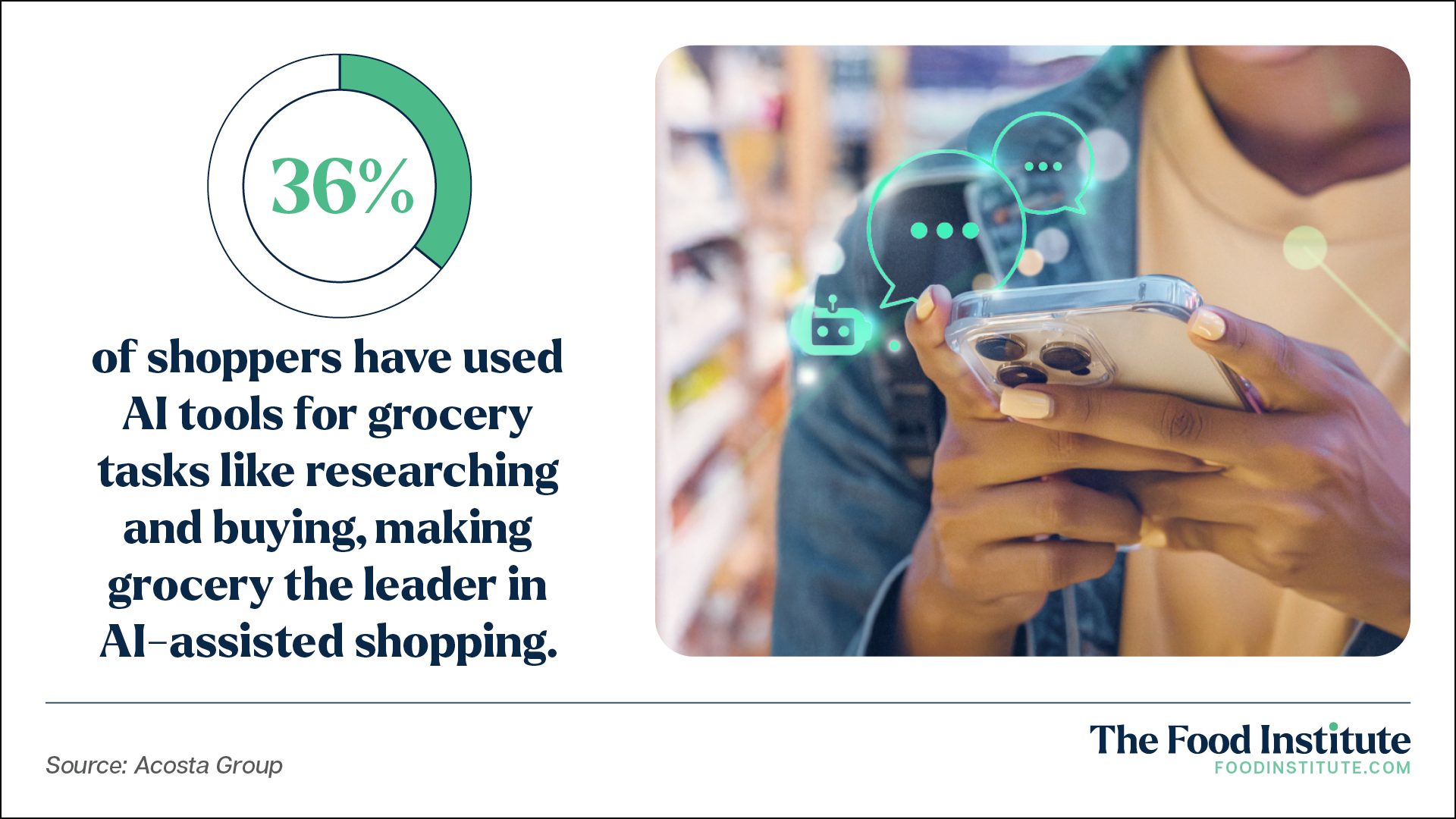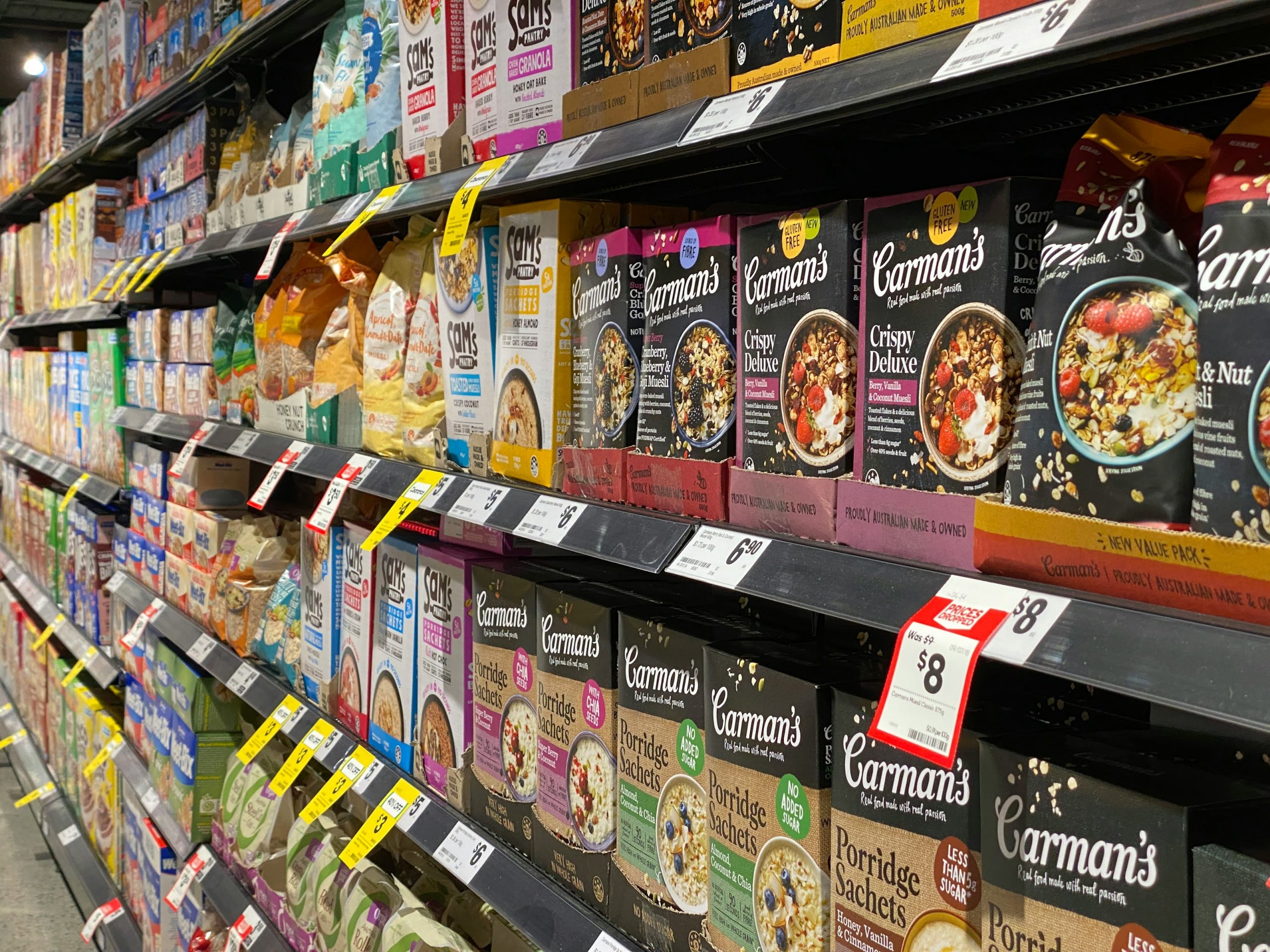The AI revolution is reshaping how consumers shop. That’s especially true in retail, as illustrated by a new study conducted by Acosta Group.
The research, which surveyed 1,074 shoppers, illustrates that AI has quickly moved from novelty to routine. Acosta Group found that 70% of shoppers have used at least one AI tool or feature to assist with shopping, with ChatGPT leading in usage. Consumers are using the technology to save money and time, and to learn about products.
“Generative AI tools are becoming the new gatekeepers of the shopper journey,” said John Carroll, president of connected commerce at Acosta Group. “Retailers and brands have to rethink and evolve how they show up in AI-powered environments, build trust with consumers, and prepare for a future where voice assistants and autonomous agents drive purchase decisions.”
One especially eye-opening finding from Acosta’s research: 53% of Gen Z AI-users find generative AI more trustworthy than traditional sources.
“Our research confirms that AI is transforming the way consumers shop, and consumers are embracing AI in grocery shopping faster than in any other category,” said Kathy Risch, SVP of shopper insights and thought leadership at Acosta Group.
Grocery leads in AI-assisted shopping, with 36% of shoppers having used an AI tool to help with tasks like researching and buying; 28% of respondents have used AI to shop for health and wellness products, 27% for electronics.
How Food Brands Can Climb the AI Ladder
Retailers must carefully strategize to work their way to the top of searches on platforms like ChatGPT.
“Space is limited with AI shopping tools,” Carroll noted. “Shoppers are seeing only the top two to three options in their searches based on context and trust.
“Brands need to understand the new retailer algorithms and revise their marketing strategies.”
Despite extensive innovation from retailer-specific assistants such as Amazon’s Rufus, fewer than 15% of shoppers have used such tools to date, highlighting the need for retailers to bridge awareness gaps.
Even as AI gains traction, trust remains a barrier for some consumers. Approximately 60% of shoppers cite concerns over privacy related to using the rapidly evolving technology.
One study from earlier this year, conducted by SEO strategist and marketing expert Joe Youngblood, found that 26.3% of American adults now choose ChatGPT over Google searches (23.1%) when shopping online.
“AI is quickly stepping into the role of digital personal shopper,” Youngblood said. “Consumers are asking AI for recommendations … and many find it easier than sifting through Google’s ads.”
Youngblood’s survey also found that 75% of Americans have used AI in the past six months. ChatGPT leads overall AI usage at 46.1%, followed by Google Gemini (22.8%) and Meta AI on Facebook (19.3%).
Optimizing to Drive Conversion
These days, brands and retailers must optimize digital content across all platforms for AI-driven discovery, Carroll said.
More advice for gaining visibility in the realm of AI chatbots:
- Shift from keyword to conversation, using real language to optimize content
- Audit AI recommendations – prompt ChatGPT, Gemini, or another tool to monitor your brand presence
- Strengthen brand and retailer collaboration – share AI demand signals to refine joint forecasts
AI is ushering in a brave new world for retailers. But experts like Carroll see endless possibilities for the technology.
“In the near future, AI agents will be making at least some of our purchase decisions,” Carroll said. “The retail and brand winners will be those who build trust, show up in AI-powered environments, and make it easy for shoppers to say ‘yes.’”






